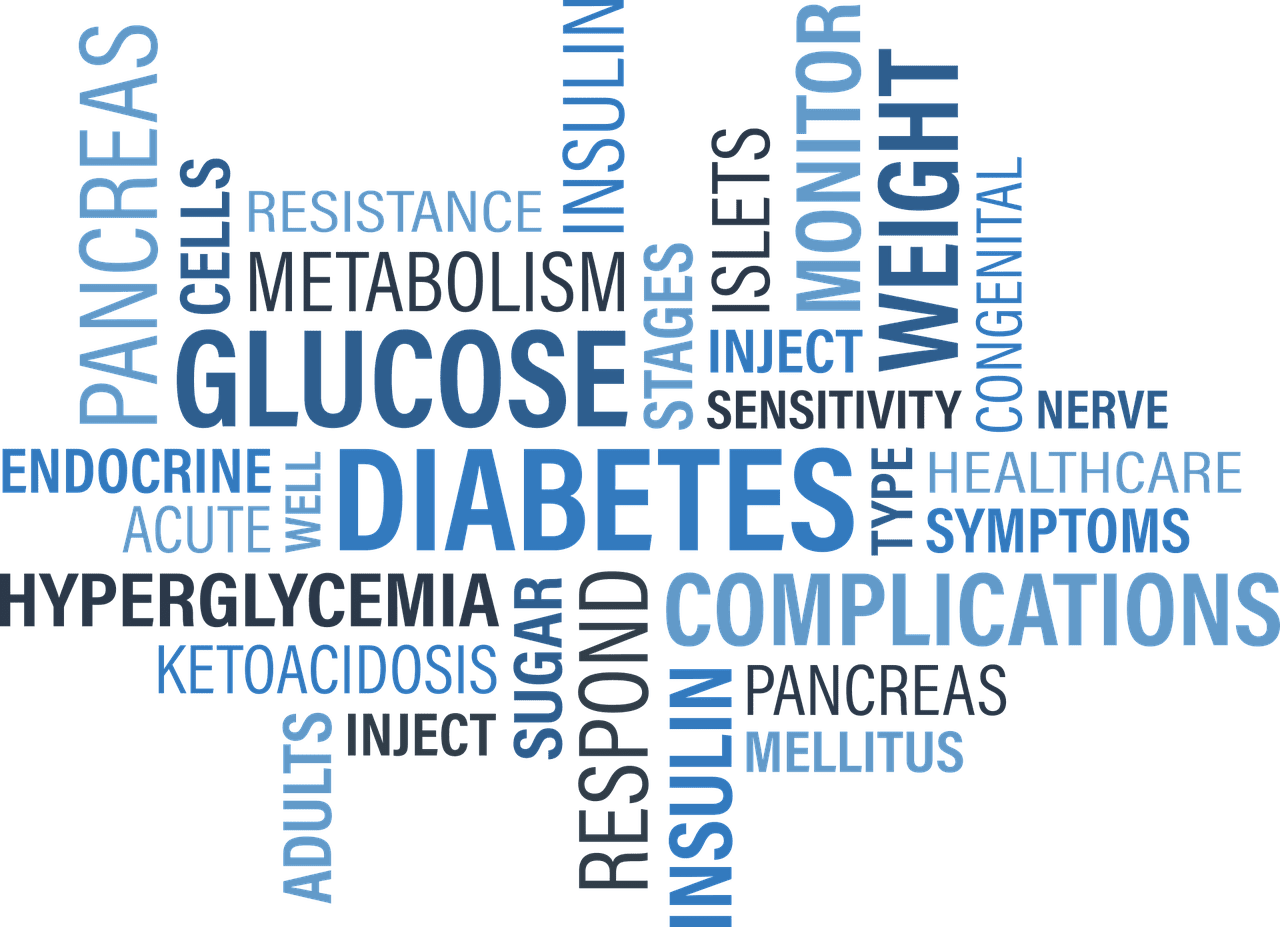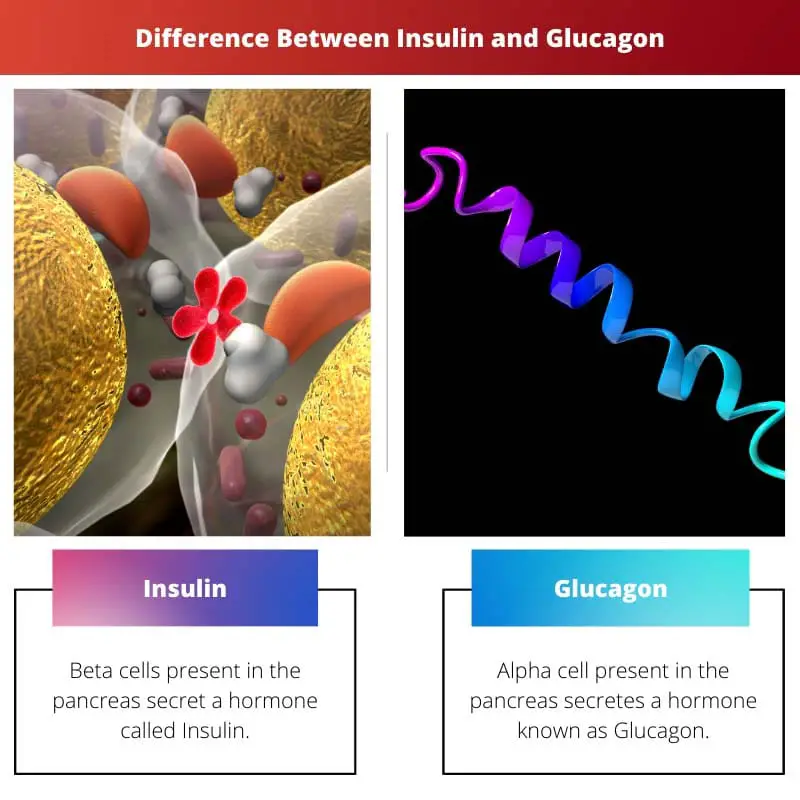Our body is not just skin and bones. It consists of various tiny particles and fluids, which contribute to keeping it healthy and also protect it from any disease that can harm it.
While we all know about the blood and its particles and glycogen, not many know about glucagon, which sounds similar. Also, insulin is not something new we all have studied it once.
But only a few know the difference between insulin and glucagon as they have few similarities among themselves but are very different from each other.
Therefore, below is all the information related to both insulin and glucagon and how both of them are not the same.
Key Takeaways
- Insulin is a hormone produced by the pancreas that lowers blood sugar levels, while glucagon is a hormone that raises blood sugar levels.
- Insulin is released in response to high blood sugar levels, while glucagon is released in response to low blood sugar levels.
- Insulin promotes glucose uptake and storage in cells, while glucagon promotes glucose release from cells.
Insulin vs Glucagon
Insulin and glucagon are both hormones produced by the pancreas. Insulin lowers blood sugar levels, while glucagon raises blood sugar levels. Insulin is necessary for the body to use glucose for energy, while glucagon helps release stored glucose when blood sugar levels are low.

Insulin is a hormone secreted by the beta cells present in the pancreas and is responsible for maintaining the sugar level in the body by decreasing it and is the main anabolic hormone present in the body.
It is also responsible for the absorption of glucose. It inhibits or decreases glucagon formation to maintain a balance of sugar levels and promotes the formation of glycogen.
Glucagon is also a hormone secreted in the pancreas by the alpha cells of it, and in the body, it is the main catabolic hormone. It is responsible for increasing glucose concentration along with fatty acids.
They also attach themselves to the liver cells of the body and are responsible for breaking down glycogen. In the absence of it, the sugar level will decrease.
Comparison Table
| Parameters of Comparison | Insulin | Glucagon |
|---|---|---|
| Sugar level | Reduces the level | Increases the level |
| Secretion | Beta cells secret it | Alpha cells secret it |
| Glycogen | Promotes synthesis | Breaks down it |
| Relation | Inhibits glucagon formation | Does not control insulin |
| Function | Give signals to blood cells | Attach with liver cells |
What is Insulin?
Beta cells present in the pancreas secret a hormone called Insulin. It is important as it controls the sugar level in the body and also stores glucose. And ultimately is responsible for a strong metabolism.
In the absence of this, the body will not be able to store glucose which further results in the absence of vital fats in the body.
The functions or roles of insulin are:
- The activity of enzymes: it modifies the reactions and activities of enzymes in the body.
- Building muscles: it helps build the muscles in the body in case of some sickness or injury.
- Synthesis of lipids: it synthesis lipids by taking them into fat cells, which are then converted into triglycerides.
- Managing breakdown of proteins: it manages the breakdown of the protein happens because of changes in fat cells.
- Amino acids and potassium uptakes: it takes them into the cells, which is not possible in the absence of insulin.
- Excretion of sodium: it also manages the fluid and exertion of sodium in the urine passed out of the body.
- Enhancing memory: it enhances the memory power and learning capacity of humans.
In the absence of insulin, the blood sugar level will increase, and the glucose will not be distributed and will remain in the bloodstream resulting in hyperglycemia.

What is Glucagon?
Alpha cell present in the pancreas secretes a hormone known as Glucagon, which is important for increasing and maintaining the sugar level in the body. It has the following role and functions in the body:
- It regulated the utilization of glucose.
- Stimulates liver.
- Activate gluconeogenesis
- Responsible for breaking down stored fats.
It gets activated when the sugar level in the blood is low by giving the signal to the liver. Its level is high in the case of carbohydrates and low in the case of proteins. Therefore the level of glucagon mainly depends upon the type of meal a person eats.
People suffering from diabetes have a high level of glucagon (high sugar level in the blood), which can be due to less secretion of insulin in the body that either inhibits the glucagon secretion or reduces the blood sugar level.
In case of an increase in glucagon level, the following symptoms can be noticed:
- Diabetes (mild and high both)
- A person may lose excess weight (Without diet or exercise)
- Necrolytic migratory erythema problem
We all know our body needs a proper level of sugar. High and low both do not have a good impact on the body; therefore, glucagon ensures that the level does not reduce to a level that creates any problems.

Main Differences Insulin and Glucagon
- Both Insulin and Glucagon have different relations or functions with the sugar level, while insulin is responsible for the decrease in the sugar level of the body. Therefore, it is released when the sugar level is high, while glucagon is responsible for the increase of the glucose level and is released by the level is relatively low.
- They both are secreted through different body cells; beta cells are responsible for insulin secretion, whereas Alpha cells are responsible for the secretion of Glucagon in the body.
- They both are related to the glycogen in the body, but not in the same manner. While insulin promotes the making or synthesis of glycogen in the body, glucagon helps in breaking it down.
- They both are related to each other, as insulin inhibits the formation of glucagon so that the sugar level in the body should not be increased, while glucagon does not have any such control over insulin formation.
- The function of Insulin is to give signals to the blood cells in the body, for example, liver cells and muscle cells, while Glucagon is responsible for attaching itself with liver cells.

- https://journals.physiology.org/doi/abs/10.1152/physrev.00063.2017
- https://academic.oup.com/edrv/article-abstract/16/2/117/2548489
- https://europepmc.org/article/med/3301317
- https://journals.physiology.org/doi/abs/10.1152/physrev.00034.2006
- https://www.nejm.org/doi/pdf/10.1056/NEJM197108192850806
- https://diabetes.diabetesjournals.org/content/47/2/159.short

The breakdown of the roles and functions of insulin and glucagon provides a deeper understanding of their significance in our bodies.
I appreciate the clear and concise explanation of these hormones. It’s essential knowledge for everyone.
Absolutely, this article is a valuable resource for understanding the physiological processes related to blood sugar regulation.
The details provided about the functions of insulin and glucagon are very informative. It’s crucial to be aware of their roles in maintaining blood sugar levels.
Absolutely, the differences between these hormones and how they work is essential information.
This article presented the information in a well-organized and understandable way. Thank you for sharing.
Insulin and glucagon have intricate roles in maintaining our overall health. This article provides an in-depth understanding of their functions.
Absolutely, the biochemical roles of insulin and glucagon are articulated in a very informative manner.
The article offers a comprehensive understanding of insulin and glucagon, detailing their functions and significance in our bodies.
The detailed information presented here is crucial for anyone seeking to understand the hormonal regulation of blood sugar levels.
Understanding the roles and differences of insulin and glucagon is fundamental to understanding our health. This article provides valuable information.
Definitely! Understanding these hormones is vital for maintaining a healthy lifestyle.
This article offers an insightful comparison between insulin and glucagon. It’s a vital read for everyone interested in understanding their health and wellness.
I couldn’t agree more. The importance of these hormones is truly highlighted through this detailed comparison.
The detailed comparison table between insulin and glucagon serves as an excellent reference for understanding their influence on our health.
I found the comparison table to be very helpful in understanding the differences between insulin and glucagon.
The clear distinction between these hormones is well-explained, making it easier to comprehend their roles.
Insulin and glucagon are two hormones that play a key role in the overall health of our bodies. This comprehensive explanation helps us understand their differences and how they function. Thank you for sharing.
I agree. This is a very detailed explanation that is important for all of us to know.
Great information. It’s always fascinating to learn more about hormonal regulation.
The informative details about insulin and glucagon serve as a critical guide for understanding the impact of these hormones on our health.
This article offers valuable information about these hormones and their functions. It’s an important read for everyone.
Absolutely, understanding the differences between insulin and glucagon is essential for maintaining a healthy lifestyle.
This article provides a valuable in-depth explanation of insulin and glucagon, highlighting their respective roles in regulating blood sugar levels.
I appreciate the detailed insights into the roles of insulin and glucagon. It’s important information for everyone’s well-being.